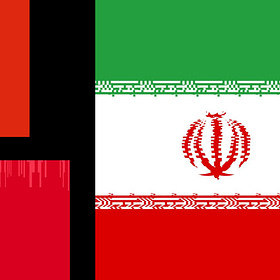How Trump Got a Gaza Ceasefire
The very qualities that make Trump dangerous domestically made him uniquely capable of delivering a win in Gaza.
A more positive note: I recently won a rematch against my fellow World Chess Champion Vishy Anand, and my friend and RDI Hero of Democracy Maria Corina Machado was awarded the Nobel Peace Prize. Call them small wins, but we don’t have enough good news these days. To celebrate, I’m giving away three chess sets, autographed by yours truly. Anyone signed up as a premium subscriber as of October 31, 2025 will be automatically entered to win.1
Remember, I don’t take one kopek from your paid subscriptions. All proceeds support the work of the Renew Democracy Initiative, including direct aid to Ukraine, amplifying the work for political dissidents, and getting more content up on The Next Move.
— Garry Kasparov, October 2025.
Uriel Epshtein is the CEO of the Renew Democracy Initiative.
Evan Gottesman is director of communications and special projects at the Renew Democracy Initiative.
After the deadliest terror attack in Israel’s history and two years of grinding war in Gaza, Israel and Hamas are implementing the first phase of what could be a long-term ceasefire.
This is great news. And the man who stewarded the deal was President Donald Trump.
Those who have been alarmed by Trump’s aggressive concentration of federal power at home are understandably wary of acknowledging a Trump achievement abroad. But the very qualities that make Trump dangerous domestically made him uniquely capable of delivering a win in Gaza.
First, we have Trump’s reality distortion field—his ability to convince people something is when consensus insists it is not. The term—of Star Trek origin—was used to describe Steve Jobs’ special talent for rejecting common wisdom and succeeding in spite of what everyone believed to be impossible odds. It’s essential for any entrepreneur with a vision. Elon Musk, Bill Gates, Uber’s Travis Kalanick: all rejected the collective wisdom of countless people and as a result, achieved something great.
Of course, anyone who’s witnessed the last decade in American politics can tell you that reality distortion isn’t always a good thing. It’s exactly Trump’s belief that he can create his own reality that led him to convince nearly half the country that the 2020 election was rigged in spite of the evidence. It’s also what led him to announce a likely deal days in advance despite Hamas’s many caveats and the fact that Netanyahu’s coalition might not sign off. Conditions were not necessarily ripe for a deal. A more honest president might have simply acknowledged these obstacles and gone back to the drawing board. Trump instead took to Truth Social throwing around the full power of his office and said there’s going to be a deal, and lo, there was.
Outside of the reality distortion field, there’s also Trump’s ambivalence toward expertise, intellectual orthodoxies, and history in general.
Expertise is not a bad thing. In some areas—like, say, vaccines—it’s indispensable (and here Trump again endangers public health). But foreign policy is not governed by the iron laws of science, and it seems likely that previous administrations lent academic expertise and diplomatic protocols too much credence, failing to consider seemingly outlandish ideas simply because that’s just not how things are done.
Trump’s team is the first American administration in a generation to generally exclude the professional diplomats who floated from administration to administration without achieving any breakthroughs.
The people who pass through the revolving door of government and think tanks, whom both pro-Israel and pro-Palestinian partisans derisively refer to as “peace processors.” And this ceasefire likely benefitted from the absence of those old hands.
More from The Next Move:
Finally, Trump shows disregard for process, precedent, and rules.
In his first term, one of Trump’s biggest wins was the Abraham Accords, opening up relations between Israel, the UAE, Bahrain, Morocco, and Sudan.
Just a few years earlier, in 2016, then-Secretary of State John Kerry had told an audience at the Brookings Institution:
There will be no advance and separate peace with the Arab world without the Palestinian process and Palestinian peace…that is a hard reality.
How wrong Kerry had been, the critics jabbed after the Abraham Accords were signed.
Except Kerry wasn’t wrong about the dynamics of Israeli-Arab normalization—according to the old reality.
Remember what we said about Trump and the reality distortion field? And just as diplomats knew what the prerequisites were for any possible Israeli-Arab deal, they were equally certain of what could never be offered.
Incentives like stealth fighters for the UAE or recognizing Moroccan claims to Western Sahara or revoking Sudan’s state sponsor of terrorism designation were ruled out from the get go. The Obama administration wouldn’t even brief the Emiratis on the F-35’s capabilities, let alone sell them a fleet, as Trump sought to do.
Crying “no, you can’t do that” has never stopped this president.
Trump may have actually run roughshod over legal restrictions in trying to get F-35 jets to the Emiratis—that deal has been stuck in limbo for five years, but it helped get the UAE into the Abraham Accords. Similarly, Trump may have gotten Turkey to apply pressure on Hamas in exchange for lifting a ban on F-35s for the country and settling a court case against a state-owned Turkish bank.
Yet instead of ruling out generous concessions because of custom, law, or propriety, Trump says “name your price.” It doesn’t matter to Trump if what he does looks proper or if it smacks of a 747-sized conflict of interest. On the one hand, this indifference enables Trump to leverage the Office of the President for personal gain; on the other, it empowered him to make progress in Gaza where Joe Biden failed.
Democracy and diplomacy are different games. Trump’s willingness to ignore the rules of the former has yielded him a likely win in the latter. Recognizing his achievement in Israel and Gaza does not mean ignoring the escalating danger of arbitrary National Guard interventions, unprecedented attacks on free speech, and denial of due process to immigrants here in the United States. It crystallizes our understanding of how Trump has been able to get as far as he has, for better and for worse.
More from The Next Move:
October 7 Exposed an Authoritarian Axis
Before the Hamas attacks on Israel, Western policymakers refused to acknowledge a problem that ran from Gaza to Yemen through Iran, Russia, and China.
The Trojan Horse of Campus Antisemitism
The federal government is exploiting real concerns about Jew hatred as a vehicle to deliver a right-wing policy grab-bag.








I tend to agree. I had a a dear friend from Libya who taught me early on that the west has no idea of how to deal with the Middle East. In short, he would say we are still tribal. If another tribe hits you then you must hit back 4x has hard to make your point. He said, that is how the tribe gains respect.
Trump has the animal instinct. The fact that djt provided a take it or leave approach with Hamas where a rejection of the proposal would provide the green light to destroy Hamas, seems to fit the thinking my friend and I discussed.
To Hamas, Trump is a proven tribal warrior and they understood it was not a bluff. That is why I believe Hamas agreed…this time.
Lots of important things here.
But I think you are ignoring one of the most important things about Trump. He doesn’t care about the future (except his own bottom line). He only cares about the optics of the present. So if the F35 tech is sold to Russia, doesn’t bother Trump. If more US journalists are tortured and killed by MBS, doesn’t bother Trump. If Iran accelerates their nuclear program to avoid getting bombed again, doesn’t bother Trump. If international troops are killed in Gaza and the ceasefire dissolves into renewed atrocities, doesn’t bother Trump. It is much easier to force a deal (or use military force) when you waive away potential risks.